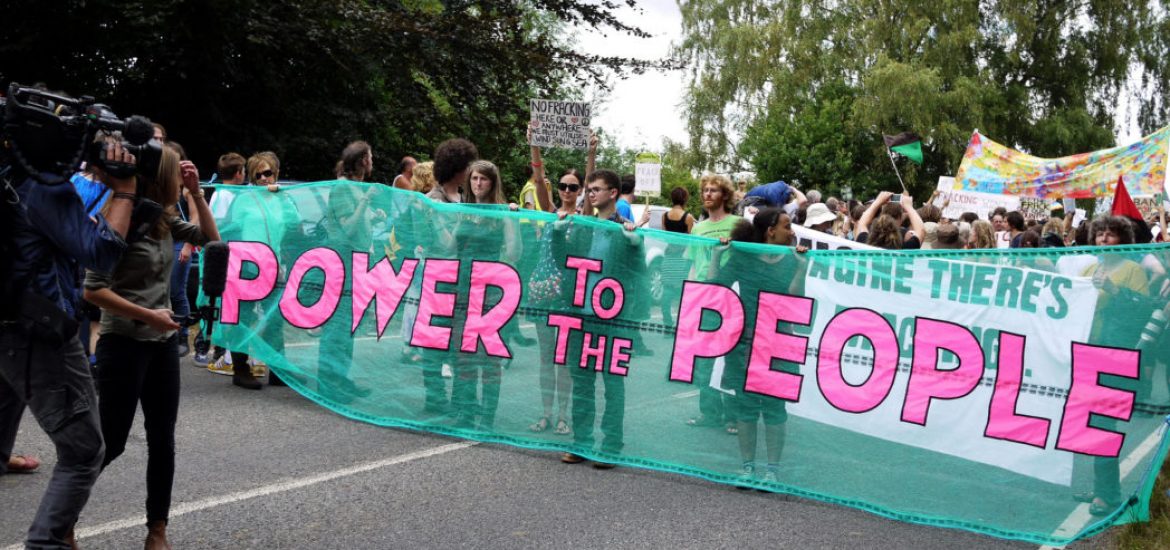
As most of the rest of Europe has rejected fracking, Britain’s right-wing government has turned down a controversial request from Cuadrilla to ease limits on earthquakes caused by the practice, despite claims that the rules could prevent the firm measuring the country’s shale-gas potential.
Cuadrilla has caused nearly 30 minor earthquakes since it resumed fracking at Preston New Road in the northwest English county of Lancashire in October. The strongest was measured at 1.1 magnitude on Monday.
A “traffic-light” system was introduced after Cuadrilla was stopped in its previous operations in 2011 when it caused two tremors of up to 2.3 magnitude. The UK-based firm now has to cease fracking for 18 hours after a tremor of more than 0.5 on the Richter scale, although quakes below 1.5 magnitude cannot be felt on the surface.
Cuadrilla has twice breached the limit in the past week, with tremors of 0.8 and 1.1.
Energy minister Claire Perry said: “It would be a very foolish politician who would do things that would be considered to be relaxing regulatory standards when we are trying to reassure people about safety.”
Francis Egan, Cuadrilla CEO, earlier claimed the limits prevented it fracking effectively at the site near Blackpool and block the development of a commercially viable shale industry.
The firm claims significant amounts of gas are trapped within shale rock under northern England. Fracking involves pumping water, sand and chemicals to fracture shale rock hydraulically and release gas.
Egan said his team had so far been able to inject less than half the required sand to keep fractures in the rock open through which gas would flow up. Cuadrilla wants the earthquake limit raised to 2.
Egan said the existing limit was “like someone saying you can construct a house but you have to use a plastic hammer”.
The controversial technique has come under fire elsewhere. Offsetting emissions generated by fracking could cost up to €2.7 billion per year by 2030 when the shale gas industry is at full production in Australia’s remote Northern Territory (NT) in 2030, according to research by the Australia Institute.
The state’s government lifted a moratorium on fracking earlier this year, while promising to ensure it would not increase NT’s net greenhouse-gas emissions but offsetting the emissions would cost €2.7 billion a year by 2030, the report warned.
The Australian Petroleum Production and Exploration Association rejected the estimates, labelling them a “deliberate attempt” to overstate potential emissions.
Anti-fracking protests. Picture credit: Flickr





